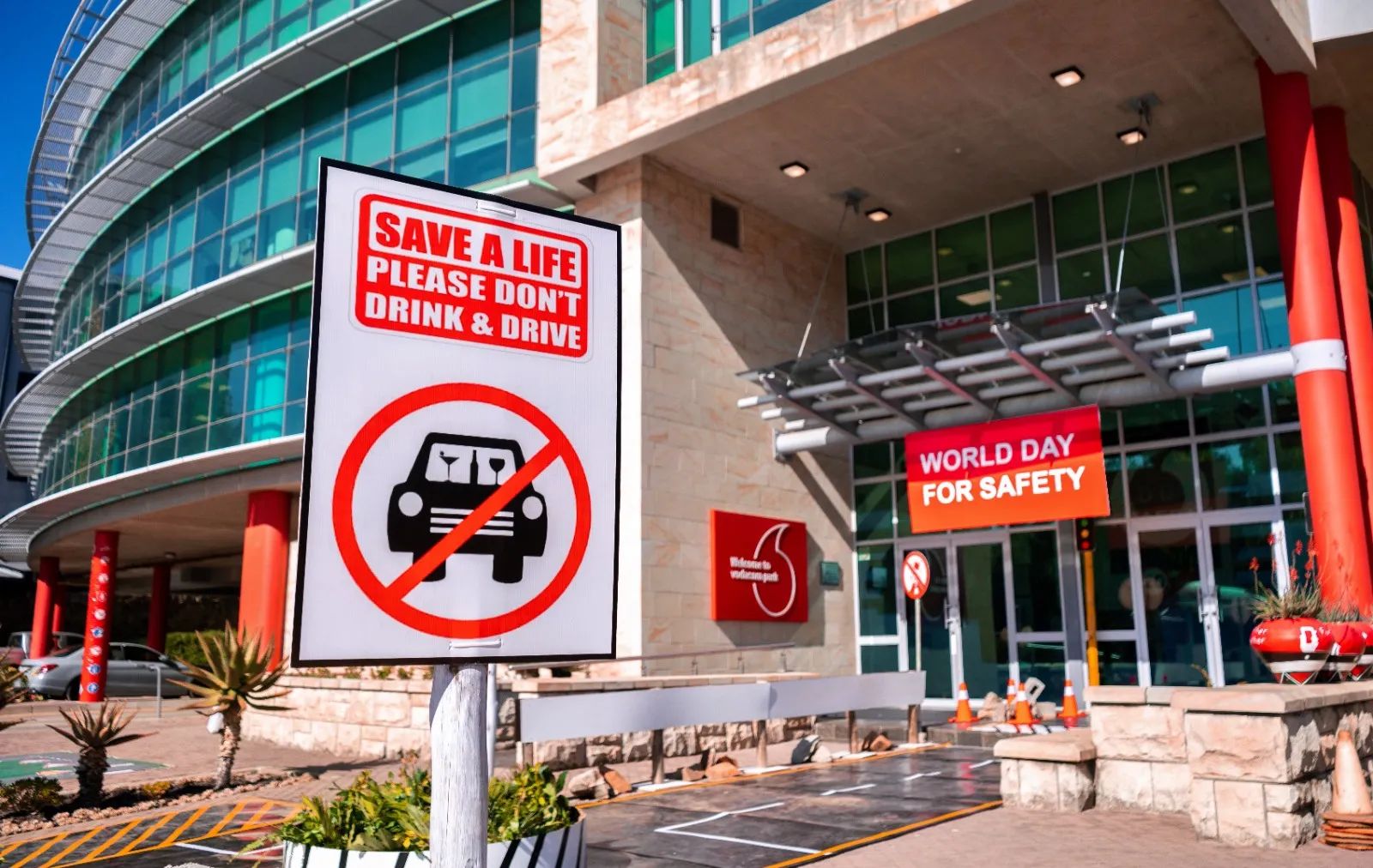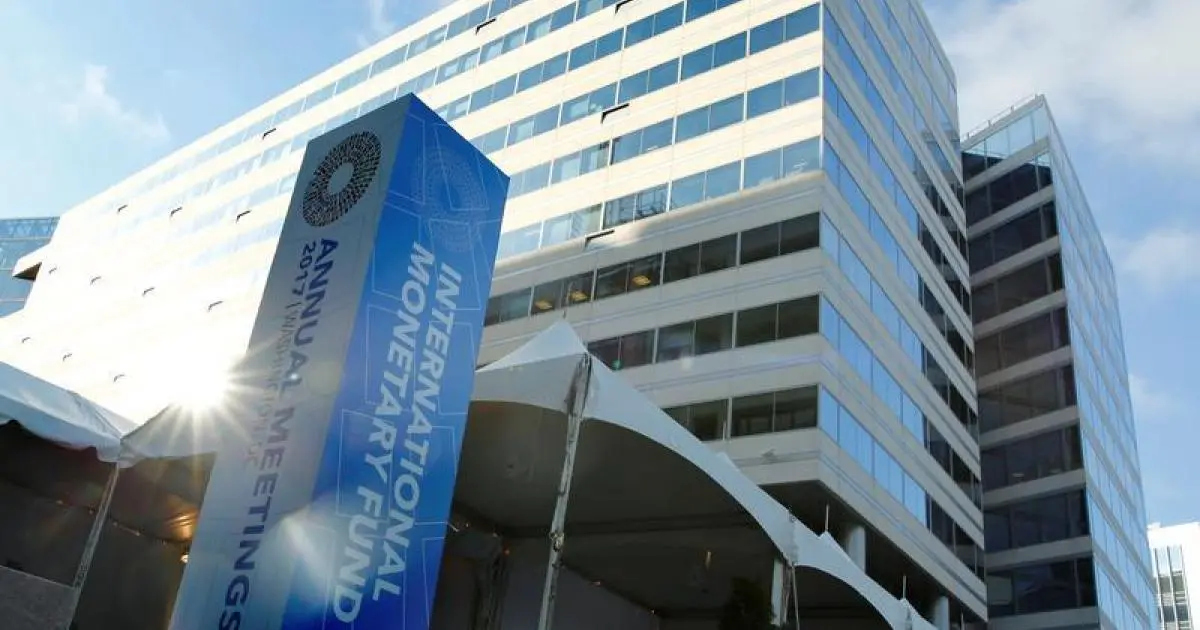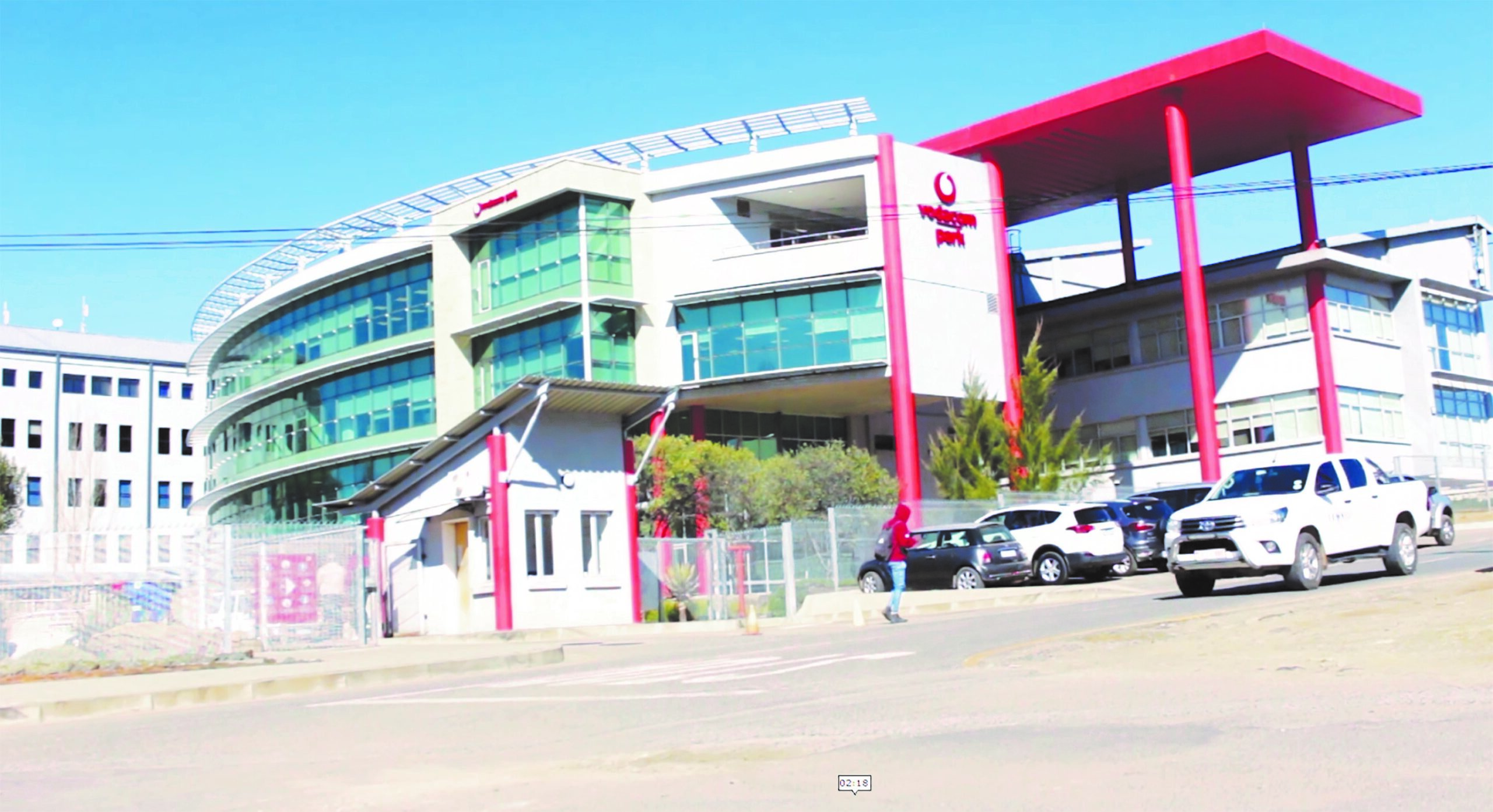… VCL Financial Services continues to dominate mobile money platform
Mohloai Mpesi
Shortly after being chronicled in the International Monetary Fund (IMF)’s good books as mobile money dominating the industry, Vodacom (VCL Financial Services) Financial Services mobile money product M-pesa administrators sleep not a wink as they eye international markets.
The company has grown from strength to strength since its inauguration nine years ago rendering financial services while helping to address challenges that Basotho come across in their daily lives, coming at the backdrop of an announcement made by the IMF earlier last month that the mobile money has contributed to the growth of digital money with 87% of market share dominated by the giant inaugural telecommunications company.
In an interview with Newsday this week, VCL Financial Services Managing Director Palesa Mphunyetsane, said the eminent progress of Mpesa is due to diligent work made to address Basotho financial challenges.
She said they are now aiming at conquering the international market while embracing technology.
“The future is very bright! It’s a journey and we are going to embrace the technology. For our merchants and agents, we have to do more in terms of lending products for businesses not only individual customers.
“We are expanding our IMT partners; we have partners in South Africa and obtained a license from our regulator few months ago which has opened doors of opportunity for us to also tap into other corridors globally.
“So we are now busy establishing global partnerships where Basotho will be able to send money from wherever they are,†she said.
Mphunyetsane indicated some of their highlights as inclusive of, ably overcoming such challenges as sending money to loved ones living in the remotest areas of the country, standing in long queues to send money at banks and paying for utilities such as electricity and water as well as insurances services subscriptions to mention but a few.
Mpesa took strides to meeting such needs with in-depth researches conducted and customer education executed to enable the illiterate individuals to access the services without hurdles.
The IMF report indicates that mobile money usage has grown rapidly in the country helping to expand the reach of digital financial services. The report states that less than half of the mobile money accounts are actively used and that Lesotho has made greater progress for all groups compared to other Low and Middle Income Countries (LMICs), including for the poor, less educated and rural individuals.
“Usage has increased rapidly, with mobile money accounts more than doubling since 2017. 2.2 million Mobile money accounts were registered as of year-end 2020, of which 882,000 were 30-days active (40%) and 920,000 were 90-days active (42%). Active accounts equate to around two-thirds of the adult population of 1.4 million. Therefore, while mobile phone penetration appears high, this reflects the use of multiple SIM cards.
“Although there are five mobile money issuers, Vodacom dominates the sector with an 87% market share. Despite rising interest, digital lending is in its infancy partly due to the lengthy licensing process for Fintech companies,†the report reads.
The report continues that the increasing use of mobile money for domestic remittances has led to a decline in informal services for cross border remittances. As the growth of mobile money has formalised the majority of domestic transfers, the share of informal remittances (cash carried across the border) has been declining.
“FinMark Trust estimates the proportion of informal remittances declined from 54 % in 2016 to 30 % in 2018. The decline is due to various partnerships between MNOs, MTOs, retailers (e.g., Shoprite) and exchange bureau that have expanded the availability and reduced the cost of formal remittances.
“Policies to Increase Financial Inclusion, Mobile money and other digital financial services are a promising avenue for increasing financial inclusion for households. The Central Bank of Lesotho (CBL) is revising the National Payments Act and improving the regulatory framework, which will also increase consumer protection, and is planning upgrades to improve interoperability across service providers,†the report further states.
Mphunyetsane said the market share translates to the exceptional delivery of their service to the customers to whose needs they more than pay attention in order to respond to, adding that interaction with their customers is what has helped them to come up with more client-responsive products.
She said this has enabled them to penetrate the existing base of customers or subscribers that are already on the network on their expedition, which somehow helped to beat their competitors.
“Vodacom was already a trusted brand in the market, so when you introduce a product like M-pesa it means that customers would already trust the company that delivers M-pesa services. This is why other brands are not as popular. So it is all by virtue of being a trusted brand that we have been able to acquire so many customers,†she said.
She continued that it was a great challenge to convince people to be able to register and trust the process of having money in their mobile phones especially in the rural areas where people are not tax-savvy, so customer education in that regard came in handy where they recruited people through face-to-face interaction.
“We used to have a lot of activations through our promoters, even ourselves as employees we used to go out in the mountains to teach people about M-pesa and how it works. We have so many customers right now because we actually did a good job educating them about the product,†she said proudly adding that they brought a product that was a need for most people desirous of sending remittances from their workplaces to families and loved ones which proved difficult because of Basotho’s banking culture – or lack thereof.
One had to travel and incur travel costs or make a delivery through taxi driver of which they were impelled to pay commission notwithstanding the reliability of the driver.
“M-pesa was able to address such need where people now send money conveniently, effortlessly and securely on their mobile devices. Through our massive agent network, we have over 10 000 agents that have registered and are able to serve the customers across the country.
“There is a study that was carried in 201 1 called Thin-Scope Survey, the survey was conducted to reveal among others how many people were financially excluded. The study indicated that only 38% of Basotho were banked in 2011.
“We saw an opportunity to help people that were financially excluded…we introduced international remittances where people in South Africa are able to send money to Lesotho because it was a challenge for miners to come home after three or six months or compelled to use the unreliable means while the family would be struggling,†she continued adding that they also produced a product called Mokhatlo Savings Account.
This, she said, is an account which helped to minimise disputes among members of societies and financial cooperatives where come end of the year there would arise indifferences of financial misappropriation when the time for sharing money would come.
“We are very intentional about developing products that addresses people’s challenges. The good thing about the Mokhatlo Savings Account is that you need two authorised members to process the transaction; one has to initiate and the other to approve it, so every time when there is a transaction, all the members get an SMS notification indicating the movement of the money as well as the balance in the account, thus the product provides transparency and convenience to all members. This is the product that I believe changed a lot of lives.
“One of M-pesa’s admired products is Ntlatse, which enables its subscribers to take a loan to facilitate their daily lives. Everyone needs a small loan in their lives from-time-to-time, so our customers had been asking when they would be able to borrow from M-pesa, so we introduced the product. The customer process is simple; when one has insufficient funds in their account and wants to make a transaction, the message will pop on their phone and ask whether they would like to be loaned money and if they say yes, they will be lent such amount.
“We helped the agents and super agents to build and develop their businesses through the commission they make while serving our M-pesa customers. We also have initiatives that we do on annual basis where we award best performing agents.
“We look at rewards that will help them in their day to day operations, since 2016 to 2019 we gave out a van to the most performing agent. It was meant to assist them to get the stock for their operations.
“The pandemic affected every business negatively, most of our agents were closed, and during lock down it was only businesses offering essential services that were allowed to operate. That affected the ability of our customers to access Mpesa services,†she said.
To help alleviate the burden of customers, the Vodacom initiated a three months zero-rated fee for sending money, while at the same time aiding the agents with personal protective equipment to not only be heard but be seen actively participating in the fight against the Covid-19 pandemic.
Summary
- The company has grown from strength to strength since its inauguration nine years ago rendering financial services while helping to address challenges that Basotho come across in their daily lives, coming at the backdrop of an announcement made by the IMF earlier last month that the mobile money has contributed to the growth of digital money with 87% of market share dominated by the giant inaugural telecommunications company.
- Mphunyetsane indicated some of their highlights as inclusive of, ably overcoming such challenges as sending money to loved ones living in the remotest areas of the country, standing in long queues to send money at banks and paying for utilities such as electricity and water as well as insurances services subscriptions to mention but a few.
- The report states that less than half of the mobile money accounts are actively used and that Lesotho has made greater progress for all groups compared to other Low and Middle Income Countries (LMICs), including for the poor, less educated and rural individuals.

Your Trusted Source for News and Insights in Lesotho!
At Newsday Media, we are passionate about delivering accurate, timely, and engaging news and multimedia content to our diverse audience. Founded with the vision of revolutionizing the media landscape in Lesotho, we have grown into a leading hybrid media company that blends traditional journalism with innovative digital platforms.









